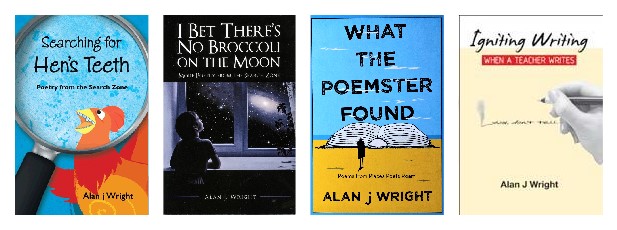• Ask students to substitute their own words, (adjectives, verbs) in a given passage that you have presented them. Then ask them to do the same in a passage of their own writing.
• Ask your students to rewrite a sentence in a number of different ways, such as rearranging word order, altering vocabulary, adding details, replacing generalizations with specific details, etc.
• You may simply ask students to imitate the style of known writers and poets and then innovate on the given text, using the ideas mentioned previously. These altered poems provide children with the opportunity to substitute words and phrases within a given framework.
• Expanding simple sentences. Give your students opportunities to expand a simple sentence into a whole story or poem.
• Encourage your children to scan the dictionary looking for words that could be the idea or spark for a poem.
• Create tongue twisting lists of alliterative speech.
• Try going chopping! Prose chopping that is; Provide your students with a prose passage and invite them to break it into free verse lines. This helps them to control the poets line and provides an opportunity to look more closely at the prose. They may begin to edit some words as they remodel the layout.
Some Quick Poetic Possibilities
• Fill the air with energy by reading one of your very own favorite poems.
• Have your students stare at a picture or an object very closely for one minute then ask them to write what ever thought are in their head at the moment.
• Use your initials to create groups of words. Each new group of words should contain words not previously used. How many combination can you create?. The idea is to create word combinations that are humorous, surprising, beautiful, in their collectiveness.
• Free writing, Speed writing, Rocket writing are all wonderful ways to free up the flow of ideas. Ask your students to write as much as they can on a given subject. The writing produced can serve as a basis for further writing.
• To get students thinking about a topic or idea ask them to write lists of words, phrases or facts related to the given topic.
• Ask your students to rewrite a sentence in a number of different ways, such as rearranging word order, altering vocabulary, adding details, replacing generalizations with specific details, etc.
• You may simply ask students to imitate the style of known writers and poets and then innovate on the given text, using the ideas mentioned previously. These altered poems provide children with the opportunity to substitute words and phrases within a given framework.
• Expanding simple sentences. Give your students opportunities to expand a simple sentence into a whole story or poem.
• Encourage your children to scan the dictionary looking for words that could be the idea or spark for a poem.
• Create tongue twisting lists of alliterative speech.
• Try going chopping! Prose chopping that is; Provide your students with a prose passage and invite them to break it into free verse lines. This helps them to control the poets line and provides an opportunity to look more closely at the prose. They may begin to edit some words as they remodel the layout.
Some Quick Poetic Possibilities
• Fill the air with energy by reading one of your very own favorite poems.
• Have your students stare at a picture or an object very closely for one minute then ask them to write what ever thought are in their head at the moment.
• Use your initials to create groups of words. Each new group of words should contain words not previously used. How many combination can you create?. The idea is to create word combinations that are humorous, surprising, beautiful, in their collectiveness.
• Free writing, Speed writing, Rocket writing are all wonderful ways to free up the flow of ideas. Ask your students to write as much as they can on a given subject. The writing produced can serve as a basis for further writing.
• To get students thinking about a topic or idea ask them to write lists of words, phrases or facts related to the given topic.

Comments
Post a Comment